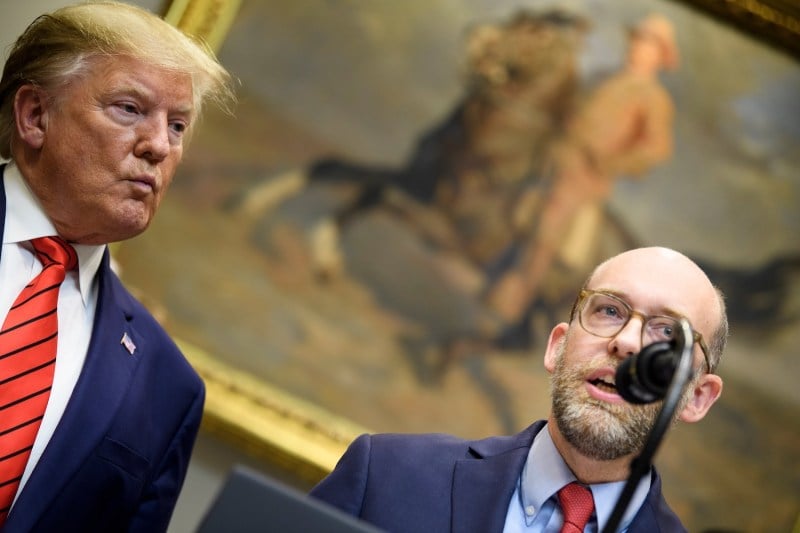Russell Vought, the current director of the Office of Management and Budget (OMB), has emerged as a pivotal figure in Washington, influencing federal policies and spending with a distinctive approach. Vought, who plays a significant role in the controversial Project 2025, is leveraging his position to reshape the federal landscape, aiming to dismantle what he and his allies perceive as an overreaching administrative state.
Under Vought’s leadership, the OMB is operating with an intensity that reflects the strategic objectives set forth by former advisor Steve Bannon. Unlike the more abrupt tactics of some in the administration, Vought is characterized by a measured use of existing governmental processes, exploiting ambiguities and loopholes to advance his agenda. This methodical approach has raised concerns among federal workers and advocates for regulatory oversight.
The OMB’s influence, while often understated, has deep historical roots. Established by the Budget and Accounting Act of 1921, the agency was designed to unify the federal budgeting process and enhance efficiency. Over the decades, it has evolved into a significant player in the executive branch, particularly under administrations that sought to assert more control over governmental spending and policy direction.
Historical Context of the OMB’s Power
The OMB’s ascent began during the presidency of Ronald Reagan, who recognized the agency as a crucial tool for implementing his conservative agenda. By appointing David Stockman as director, Reagan sought to harness the OMB’s potential for significant budgetary reforms. Stockman’s aggressive push for the Economic Recovery Tax Act of 1981 exemplified the agency’s growing role in shaping economic policy, as he advocated for substantial tax cuts and spending reductions.
The influence of the OMB was further solidified through Reagan’s Executive Order 12291, granting it extensive oversight over new federal regulations. This shift allowed the OMB to conduct economic cost-benefit analyses of proposed policies, providing it with a powerful mechanism to challenge regulatory measures deemed unfavorable. As a result, the OMB not only shaped budgetary priorities but also significantly impacted the regulatory landscape, often curtailing environmental and workplace protections.
Despite the ups and downs of political power dynamics, the OMB continued to gain strength, remaining a central figure in the federal budgetary process under both Republican and Democratic administrations. This trajectory set the stage for Vought’s current role, where he wields substantial authority over federal spending and regulations.
Vought’s Current Role and Future Implications
As he navigates the complexities of federal governance, Vought has positioned himself as one of the most influential budget directors in recent history. His efforts to implement Project 2025 reflect a broader ambition to establish conservative governance principles that could reshape the federal landscape for years to come.
While Vought’s tenure is still unfolding, early indications suggest that he is using the OMB’s power to push the boundaries of executive authority. Critics argue that his actions could lead to lasting changes that undermine the foundational principles of government accountability and transparency.
With the potential for future administrations to replicate Vought’s strategies, the need for robust checks on executive authority becomes increasingly evident. The legacy of the OMB, shaped by figures like Vought, underscores the ongoing challenge of balancing governmental power with the need for effective oversight.
As Vought continues to exert his influence, the implications for federal governance and the relationship between the executive branch and regulatory frameworks will be closely scrutinized. The unfolding narrative of the OMB under his leadership may well define the contours of American governance in the years ahead, raising critical questions about the future of the administrative state and its role in society.
